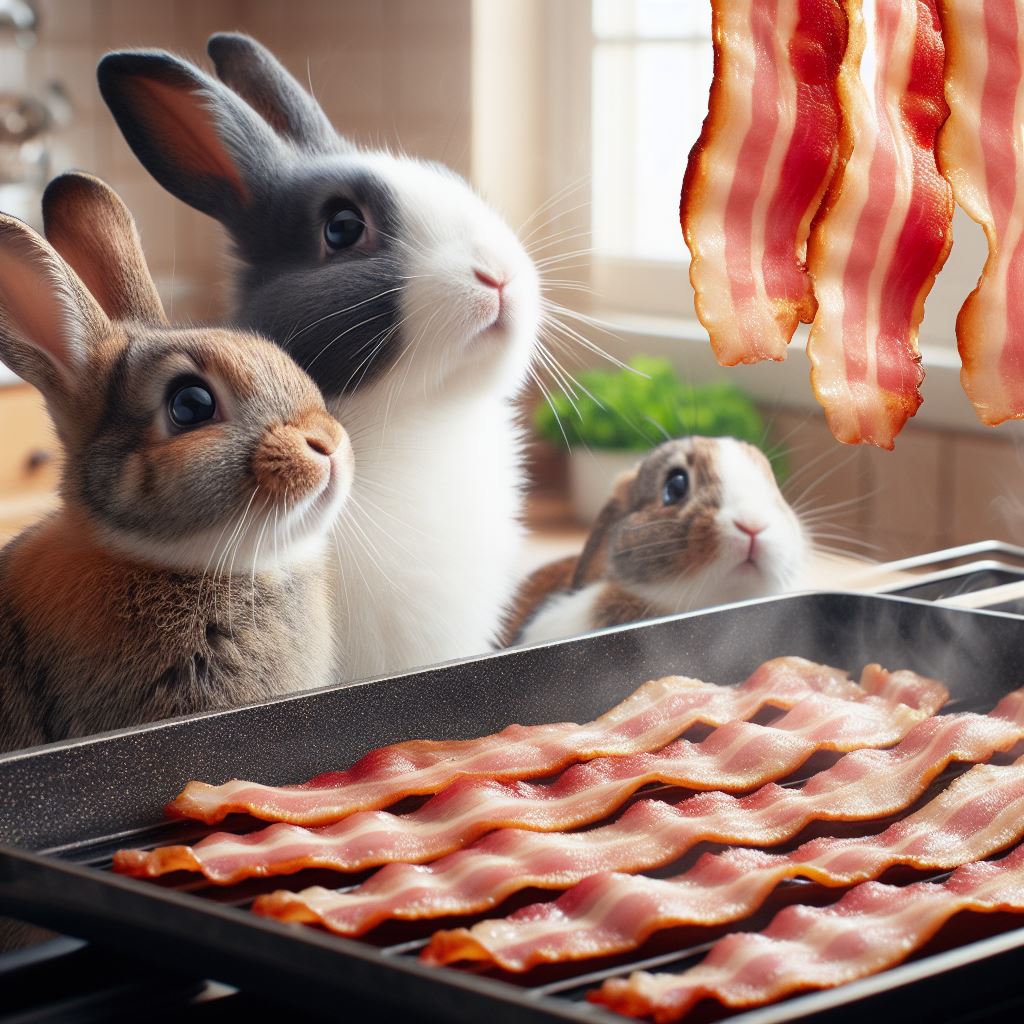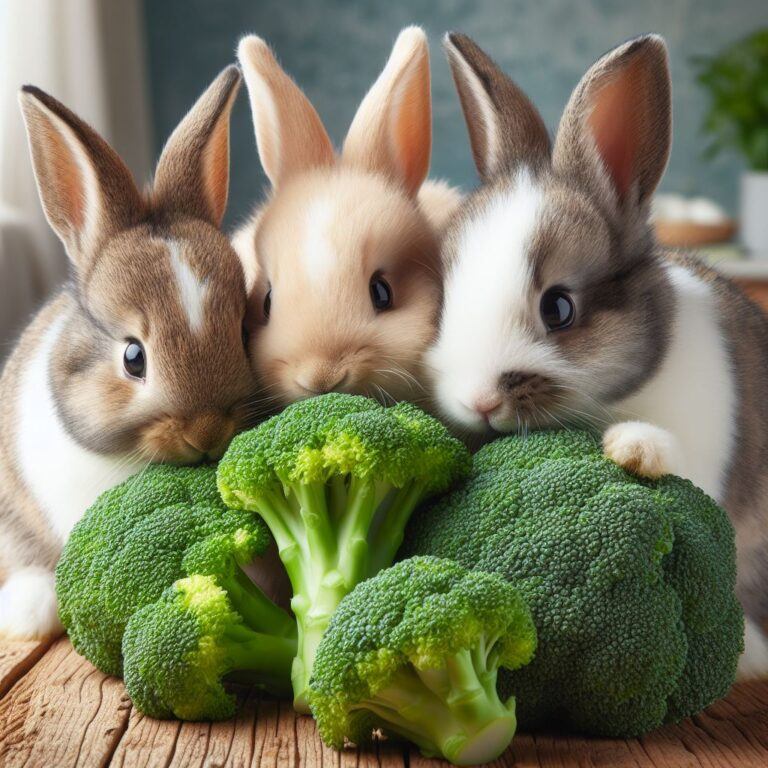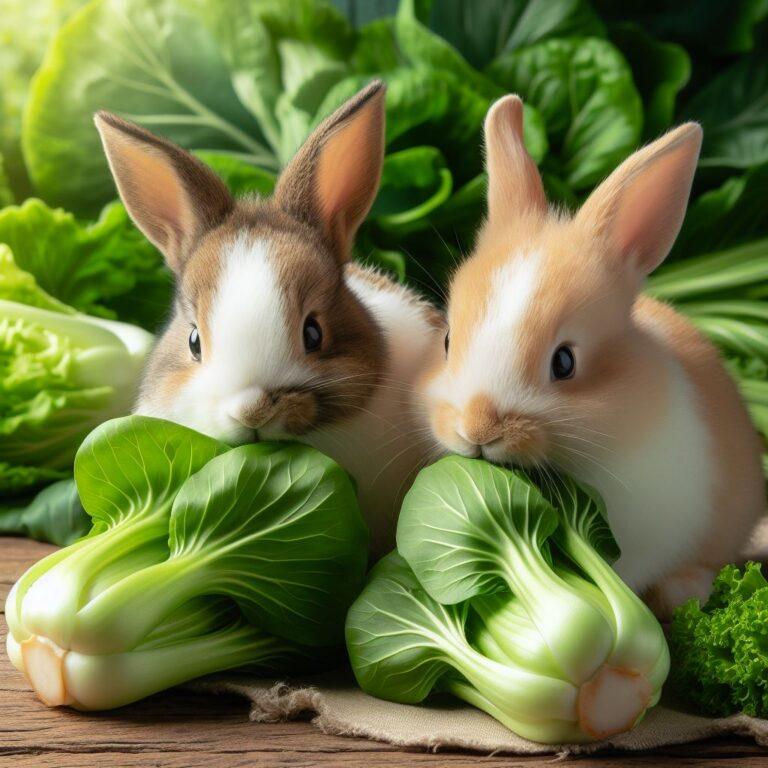Can Rabbits Safely Eat Bacon
Simply, NO, rabbits cannot eat bacon safely, or any other processed meats for that matter. Their digestive systems are herbivorous and specifically adapted to process a diet consisting mostly of hay, vegetables, and a small amount of fruits. Bacon’s high fat and sodium content can lead to serious health issues in rabbits.
I know it can tempting to share human treats with pets. However, with rabbits, it’s critical to respect their dietary limitations. Unlike carnivores or omnivores, rabbits require a diet low in fats and absolutely no meat.
Bacon is exceptionally rich in both fats and salt, making it unsuitable for your bunny.
More than just a matter of an improper diet, feeding bacon to a rabbit can cause immediate health risks.
The greasy, fatty nature of bacon can disrupt their delicate stomachs, leading to potentially life-threatening conditions like GI stasis, where the digestive system slows down or stops completely.
Knowing that bacon is no good is just the beginning. Let’s look into what makes a rabbit’s diet unique and why sticking to their natural eating habits is so important for their health.
Understanding a Rabbit’s Specific Dietary Needs
Providing the right food for your rabbit isn’t just a matter of preference; it’s a necessity for their health and well-being. As strict herbivores, rabbits thrive on a varied diet of hay, fresh vegetables, such as bell peppers, pumpkin, or celery, and a small amount of fruits.
Their digestive systems are designed to process fibrous plant materials, not the fats and salts found in meats like bacon.
The assumption that rabbits can eat anything is far from reality. Certain foods can cause serious digestive issues and should be avoided altogether.
Feeding your rabbit an inappropriate diet can lead to obesity, gastrointestinal problems, and other serious health concerns.
We must recognize the risks of an improper diet for your rabbit. Over time, the repercussions can snowball from minor discomfort to severe health issues, including gastrointestinal stasis.
This condition can be life-threatening, highlighting the importance of correct feeding.
Healthy Alternatives to Bacon for Your Bunny
By now we all know bacon should not be on the menu for our furry friends. Rabbits thrive on a diet rich in fibrous plants – exactly what their digestive systems are designed to process.
Fresh leafy greens like romaine lettuce, kale, and spinach are excellent daily foods for your rabbit.
Herbs such as basil, cilantro, and mint can also be well-received and are safe in moderation. You’ll want to ensure variety to prevent dietary imbalance and boredom.
For a treat that’s closer to fruit, consider giving your rabbit small pieces of apple (no seeds), blueberries, or strawberries. These should be infrequent treats due to their sugar content.
I always insist on introducing new foods gradually to prevent upsetting their stomach.
Experts agree that a rabbit’s diet should be primarily hay, supplemented with leafy greens and a limited amount of pellets.
Occasional safe treats can keep mealtime exciting for your rabbit without compromising their health.
If you’re ever unsure about a particular food, consult your vet or a qualified rabbit caretaker. Your rabbit relies on you to make informed choices about its diet, so prioritize their health by sticking to proven, rabbit-friendly foods.
Remember, the best diet for your bunny is one that mimics what they’d find in the wild – diverse, high in fiber, and completely herbivorous.







